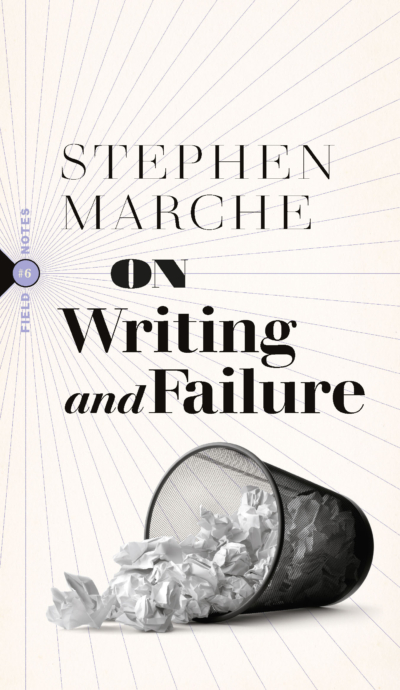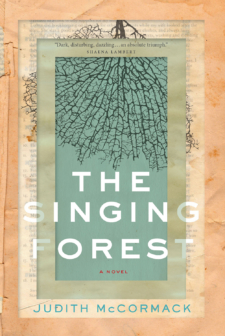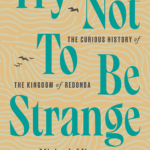Description
Writing is, and always will be, an act defined by failure. The best plan is to just get used to it.
Failure is a topic discussed in every creative writing department in the world, but this is the book every beginning writer should have on their shelf to prepare them. Less a guide to writing and more a guide to what you need to continue existing as a writer, On Writing and Failure: Or, On the Peculiar Perseverance Required to Endure the Life of a Writer describes the defining role played by rejection in literary endeavors and contemplates failure as the essence of the writer’s life. Along with his own history of rejection, Marche offers stories from the history of writerly failure, from Ovid’s exile and Dostoevsky’s mock execution to James Baldwin’s advice just to endure, where living with the struggle and the pointlessness of writing is the point.
Praise for On Writing and Failure
“The Canadian novelist and essayist describes the defining role rejection has played in his career and reflects on its importance in the lives of notable writers, from Ovid to Dostoyevsky and Baldwin.”
—New York Times
“[Marche’s] writing style is buoyant and funny. […] When the stars are aligned, someone writes a work as provocative, informed and droll as On Writing and Failure.”
—Maureen Corrigan, NPR
“On Writing and Failure romps through a series of anecdotes about the thwarted aspirations of authors so as to instruct a ‘kid writer’ not to hope for anything.”
—Literary Review of Canada
“On Writing and Failure: Or, On the Peculiar Perseverance Required to Endure the Life of a Writer must be considered essential reading for anyone seeking to write for a living, be it as a novelist, essayist, poet, columnist, or any other writing genre. Itself exceptionally well written.”
—Midwest Book Review
“Number 6 in the Biblioasis Field Notes Series. A tiny book that holds enough to be a repeated reference. Any writer will benefit from having this honest exposure to the importance of failing. It is a harsh, and still kind, reminder that the effort is more important than the result—because without the effort there isn’t a chance of anything at all.”
—Carrie Koepke (Skylark Books), The Columbia Daily Tribune
“A paean to persistence, a celebration of art for its own sake, and my favorite entry yet in the excellent Field Notes series from Biblioasis.”
—James Crossley, Madison Books
“A central (perhaps the central) paradox of the writing life is this: in order to churn out the freest, most generous, truest work possible, the writer must embrace the utter and complete futility of the task of writing. As a writer at the beginning of a new project, I couldn’t ask for a better companion to carry me through the coming, inevitable, necessary days of failure, joy, and frustration. Marche’s essay is such a heartening guide through the writer’s life (of failure). As a reader, Marche’s perspective on the lives, hopes, frustrations, and failures of some all-time greats is nothing short of a marvel. It’s like being able to see into the upside-down of centuries of literature. Any person interested in language, books, stories, and meaning-making will find themselves richer for reading this exceptional little book.”
—Chris Lee, Boswell Book Company
Praise for Stephen Marche
“How Shakespeare Changed Everything is fun and informative, with more than its share of ‘Aha!’ moments packed between its diminutive covers. Mr. Marche’s thesis is compelling and probably more true than we ever imagined.”
—New York Journal of Books
“So dazzling, so unsentimental … A work that is both beautiful and confusing. In other words, an honest love story.”
—New York Times
“Stephen Marche is capable of writing … any darn thing he wants.”
—Globe and Mail
“Brilliant … Marche has created a stunning, evocative, and impressionistic account of the ascent of wealth in the twentieth century. . . . The Hunger of the Wolf could be Marche’s breakthrough novel.”
—Booklist, starred review
“A dazzling virtuoso piece. Marche turns the making of a family’s fortune into a fascinating, bloody fairy tale.”
—Emma Donoghue, author of Room and Frog Music
“Untrammelled, unfettered, unprecedented, unselfconscious and friggin’ unbelievable, this book busts the novel open, makes literature an open question, and maps out brave new worlds for the reader to spelunk. With Raymond and Hannah I knew this guy was up to something brilliant. Shining at the Bottom of the Sea tells me I hadn’t the faintest idea.”
—Daniel Handler, author of Adverbs








